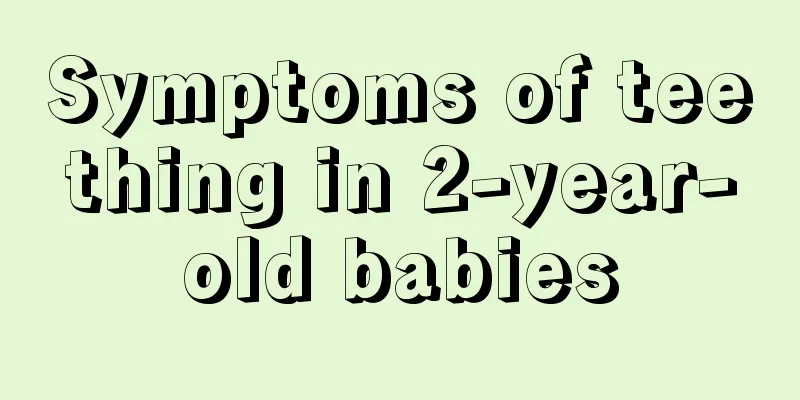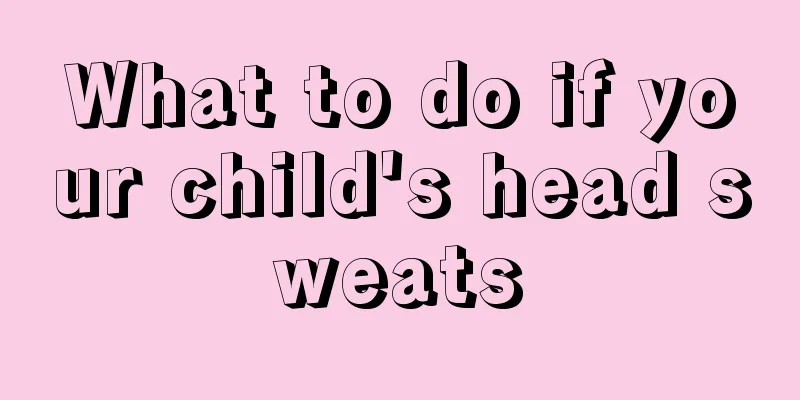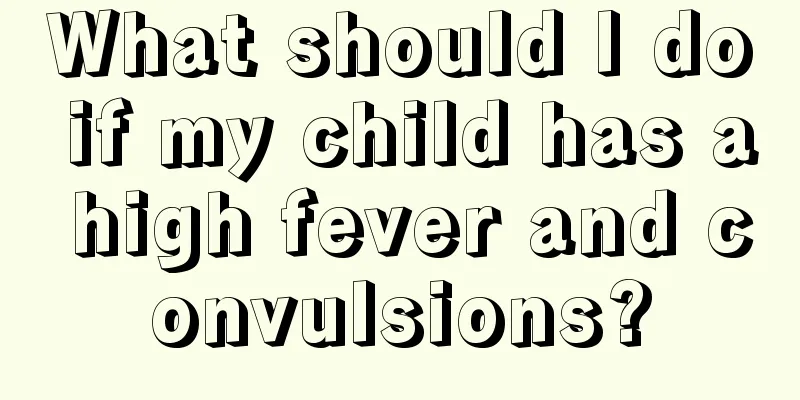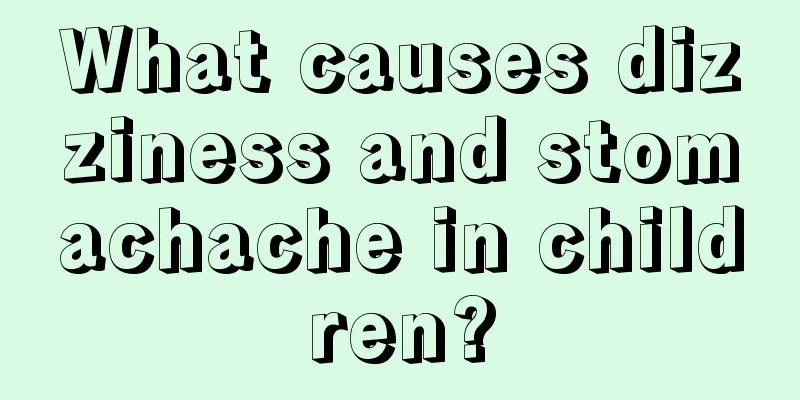Symptoms of teething in 2-year-old babies

|
When the baby reaches the age of two, his growing teeth will show certain symptoms, such as drooling. It can easily lead to a mild cough, and sometimes toothache. In more serious cases, it can make children irritable and cause a loss of appetite, etc. During this period, we must emphasize care, pay attention to oral hygiene, and develop good brushing habits. Symptoms of teething in 2-year-old babies 1. Drooling. About 2 months before babies start teething, most babies will drool or put their hands into their mouths to scratch. By observing the baby's mouth, you can see that the gums are partially white or slightly red and swollen, and they feel hard when touched. These are the tips of the baby's deciduous teeth that are about to erupt. 2. Mild cough. During the teething process, more saliva will be secreted in the baby's mouth, but the baby cannot swallow the saliva at this time. Excessive saliva will cause the baby to feel nauseous or cough. 3. Bite. This is the biggest feature of baby teething. 4. Pain, bleeding gums, and irritability. Some babies may experience pain and discomfort when teething. 5. Refuse to eat. When babies are teething, they often become restless and appear to want to suck milk because they want to put things in their mouths. However, once they start sucking milk, they will refuse to eat because of the pain in their gums caused by sucking. 6. Sleeping restlessly, pulling ears, and touching cheeks Baby teething precautions 1. If you want your baby to have good teeth, you must help your baby develop good habits of cleaning the mouth from the age of 0. From the time your baby starts drinking milk after birth, it is best to clean your baby's mouth every time after drinking milk. You can use gauze to clean it or rinse your baby's mouth with clean water. Even if babies who have not yet started eating complementary foods are very resistant to cleaning their mouths, they should be cleaned at least once a day before going to bed at night. 2. Teething is generally painless, but some babies may feel uncomfortable and irritable. Mothers can use clean fingers or moist gauze to put into the baby's mouth and rub the gums, which will help him. 3. During the teething process, the baby may feel irritable, have unstable sleep, drool at the corners of the mouth, bite things, suck fingers, rub gums, shake the head, and other discomforts. Sometimes there may be pain in the gums, causing a low fever and making the baby cry incessantly. At this time, the mother should hug the baby more, feed with breast milk, coax the baby more, and give more comfort. To sum up, these are some understandings and insights into the symptoms of growing teeth in 2-year-old babies. I hope they can help everyone. When babies are teething, they will drool, cry, and sleep restlessly. Parents must observe them carefully and identify the symptoms. When your baby is about to grow teeth, you should also pay attention to your baby's diet and nutrition. |
<<: What are the symptoms of dry eyes in children?
>>: What are the detailed symptoms of epilepsy in children?
Recommend
Is it good to use air conditioning for a two-month-old baby?
Is it good to use air conditioning for a two-mont...
What to do if your baby moves too much when sleeping at night
Some babies are always restless when they sleep a...
How to massage a newborn baby
Massaging a newborn is a popular scientific metho...
What to do if the baby's head is swollen
It is very common for babies to bump into things ...
Precautions for babies to eat sugar pills
The sugar pills we are talking about here are not...
How to grow taller if your child is short?
Sometimes when people look at problems, they alwa...
Tips for dealing with itchy eyes in children
Tips for dealing with itchy eyes in children: 1. ...
What should I do if my baby coughs a little while sleeping at night?
Coughing is a very common disease. Coughing can o...
What to do if the child does not suck breast milk
A baby must be breastfed right after birth. If br...
Tips for treating picky eating in children
Nowadays, many children are picky eaters, which i...
How to treat vasodilation in children
Vascular dilation in young children is actually a...
Precautions for children's tooth replacement
Tooth replacement is the process in which permane...
The baby's teeth are coming out in the wrong order
As babies grow and develop, they will grow teeth....
How to correct overbite in children
In daily life, we often see some children with ir...
Why is it that my baby has only one tooth?
As the baby grows, the nutrients accumulated in t...









